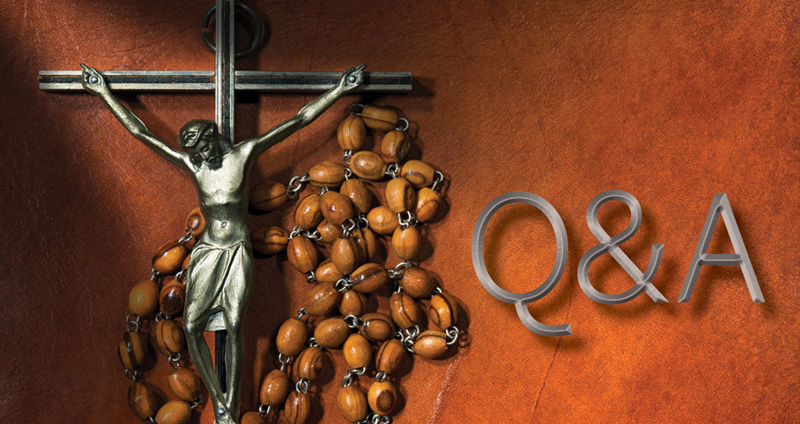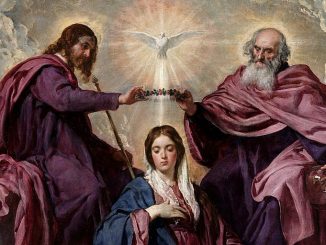
Q. Recently, I was told by friends that when John the Baptist leaped in his mother’s womb, he was made sinless by the Holy Spirit. I find it hard to believe that any human is sinless, except for Jesus and Mary. Am I correct? (Aiken, SC)
A. You have some good friends and they are leading you in the right direction. Sacred Tradition holds that when John the Baptist leaped in his mother’s womb, he was cleansed from all sin. This purification was given in a “prevenient” way by Jesus Christ, which means the salvation won by our Savior was “applied early” to the Baptist. This was done so that John could faithfully fulfill the mission entrusted to him: namely, to announce the way of the Lord Jesus so that the very work of redemption could be done.
In some respects, this is similar to the Blessed Virgin Mary. She was also the recipient of prevenient grace. For Mary, however, it was an Immaculate Conception, which we celebrated on Dec. 8. This means that Mary was preserved from all sin. For St. John the Baptist, he was born of sin but it was washed away during his pre-born encounter with the Lord Jesus.
Incidentally, this is why we liturgically celebrate the actual birth dates of both Mary and St. John while other saints are customarily honored on their date of death.
Neither of these dispensations should disturb us or our faith. They are reflections to us of God’s plan and providence within and outside of human history. Both Mary and St. John had unique missions that required a particular grace and preparation and God provided.
Q. I was told by a priest that purgatory is for those who have died in sanctifying grace but are still weighed down by the effects of past sin. I don’t understand. Isn’t sanctifying grace enough to inherit the kingdom of God? (Charleston, SC)
A. First, bravo to the priest for teaching about purgatory. It’s becoming a neglected truth while souls in such a state of purification truly need our help and prayers.
And so, secondly, let me clarify what purgatory is and what it is not. Purgatory is a continuation of the Lord Jesus’ saving work among his people. The Lord offers us redemption in this life. He purges us of sin and attachment to sin. If we die in His grace, purgatory is the last cleaning act before entering heaven. Everyone in purgatory is going to heaven.
Purgatory is not a “second chance” to accept redemption. If someone dies apart from the Lord, he has made his decision. There is no back-up plan after death. Purgatory is not self-redemption or redemption by other human beings. It is the Lord Jesus alone who saves. Our prayers for our loved ones only have power because they are welcomed and united to the work of Jesus Christ.
This leads us to your question. Yes, sanctifying grace is enough for the kingdom of heaven. It is God’s presence and action within us. Purgatory is a part of the effects of sanctifying grace as it purges and cleanses us of our venal sins and any attachments to sin in this life. It’s the last purification before entering the all-holy dwelling place of God.



